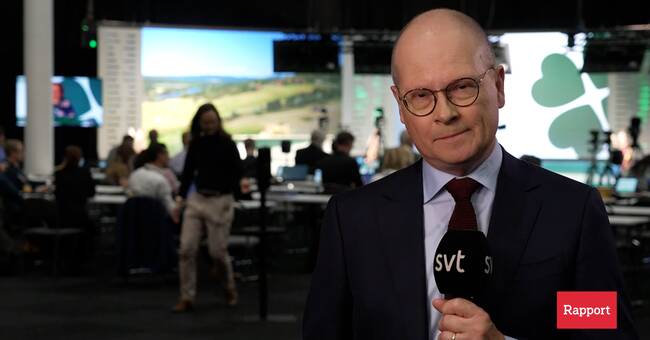Annie Lööf's introductory speech yesterday at the party meeting in Sigtuna revolved, not unexpectedly, around what she perceives as major threats to liberal democracy.
This is a topic that always gets a lot of space in her speech and which is a basic foundation in the party's attitude towards the Sweden Democrats.
The rhetoric also serves as a cohesive putty for the party's activists and sympathizers.
It is also a position that is crucial for the Center Party's attitude to the government issue.
Not enough for a parliamentary majority
The party says no to cooperation with the former alliance parties that have opened up for cooperation with the Sweden Democrats.
At the same time, Annie Lööf refuses to cooperate with the Left Party.
In practice, therefore, only cooperation with the Social Democrats and the Green Party remains, which is not enough to create a majority in the Riksdag.
An unrealistic stance on the government issue, critics say.
Not at all, answers Annie Lööf, who believes that the Center Party is "a constructive force for cooperation" in the political center.
It is obvious that it is in this role that the party wants to go to the polls next year, as a co-operative party in the middle of Swedish politics.
The problem for both Annie Lööf and the Center Party is to make others believe that it is possible to build a government alternative in this so-called center.
The moderates are not the least bit interested and in order for a government alternative to be built to the left, cooperation with the Left Party is also required, which Annie Lööf has rejected.
"No other party sees the idea as realistic"
One of her representatives in the Center Party's party leadership position, Lennart Daléus, launched the vision for the "Middle Kingdom" before the 1998 election. It was also about a government alternative in the political center.
But Lennart Daléus was also criticized for being unrealistic.
Nor did he succeed in realizing it.
After the 1998 election, a Social Democratic government took office.
The Center Party became an opposition party and only with the bourgeois alliance did the party succeed in 2006 again in government.
Just like in 1998, it is likely to be difficult to build a center-right government, according to the Center Party's model.
No other parties see the idea as realistic.
This time too, the "Kingdom of the Middle East" risks becoming a middle ground for the Center Party.
Probably have to choose
If the party wants influence and cabinet posts in a government collaboration after the next election, you will probably have to choose between the two parties you do not want to collaborate with today, ie the Left Party and the Sweden Democrats.
It is difficult to see that any government alternative can be formed after the next election that does not involve support for or cooperation with any of these parties.
Should the Center Party finally make a choice of path here, it can be absolutely decisive for which government can be formed after the 2022 election. The Center Party can thus once again be given a key role in forming a government.
A red-green collaboration in which both the Center Party and the Left Party would be included probably means continued Social Democratic government ownership.
However, the Center Party's reluctance to cooperate with the Left Party is well known.
On the other hand, opposition to the Sweden Democrats is even tougher.
It was also the only party she attacked in her vote.
And she did it again with such commitment that there is hardly room for any adjustments to this hard line later on.

